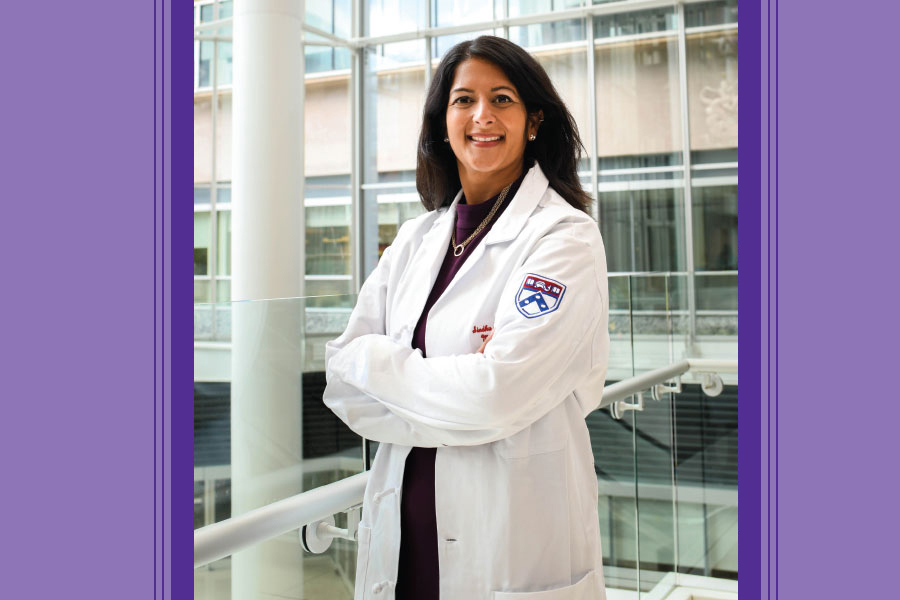Prepared for Pregnancy

Assessing social determinants of health is critical to understanding pregnancy risk. Dr. Sindhu K. Srinivas, professor, Vice Chair for Quality and Safety and Physician Lead for the Women’s Health Service Line at Penn Medicine, details her efforts to make care more accessible.
›› What do you wish you could tell your patients regarding their health prior to pregnancy? What I wish I could tell my patients is that they need to think of their health holistically and make sure that they’re in the right space and place to pursue a pregnancy. That means trying to practice all the necessary preventive health measures: your nutrition, optimizing your weight and optimizing your medical care and mental well-being prior to getting pregnant. As a maternal fetal medicine physician, I am deeply committed to maternal health research and advocacy. I am concerned about the rising rates of maternal morbidity and mortality, and the disparities that we see in those maternal mortality rates, with Black women having three to four times higher rates. So I also try to think about the cause of those disparities and what can be done so that all people can have a healthy pregnancy.
›› What’s the most critical health practice you’d like to see gain more use? Educating yourself with trusted resources and sources is really important. Education is powerful. Patients need to advocate for themselves, learn about normal pregnancy-related changes in their body and what things are not normal. For example, high blood pressure during pregnancy is a complication that can affect 10 percent or more of pregnant patients, many of whom don’t have any medical problems prior to pregnancy. Other under-utilized health practices include prioritizing mental health and developing a birth plan or birth preferences and discussing them with your provider.
›› What recent medical innovation are you most excited about in terms of ensuring the health and safety of the mother and/or child, particularly regarding high-risk pregnancies or preterm births? I try to think about how to change the paradigm of care to be more patient-centered, leverage technology and be more holistic, when we’re addressing medical needs. We also think about incorporating social and structural determinants of health into the approaches to health care, especially during pregnancy, and even leading up to pregnancy. One example is a program called Heart Safe Motherhood, which leverages texting to monitor women who have pregnancy-related hypertension after they are discharged from the hospital. We give them a simple blood pressure cuff that doesn’t require wireless internet. We enroll them into a texting platform that’s on their phone, and it’s just SMS texting. So it’s very low cost, and really makes that kind of monitoring accessible to everybody. Through that program, we’ve been able to monitor thousands of women, and we are seeing that more women are using this platform and sending in their blood pressures than before we developed this innovative program. Heart Safe Motherhood has eliminated disparities in the care of patients with pregnancy-related hypertension, something of which we are very proud.
This is a paid partnership between Penn Medicine and Philadelphia Magazine

